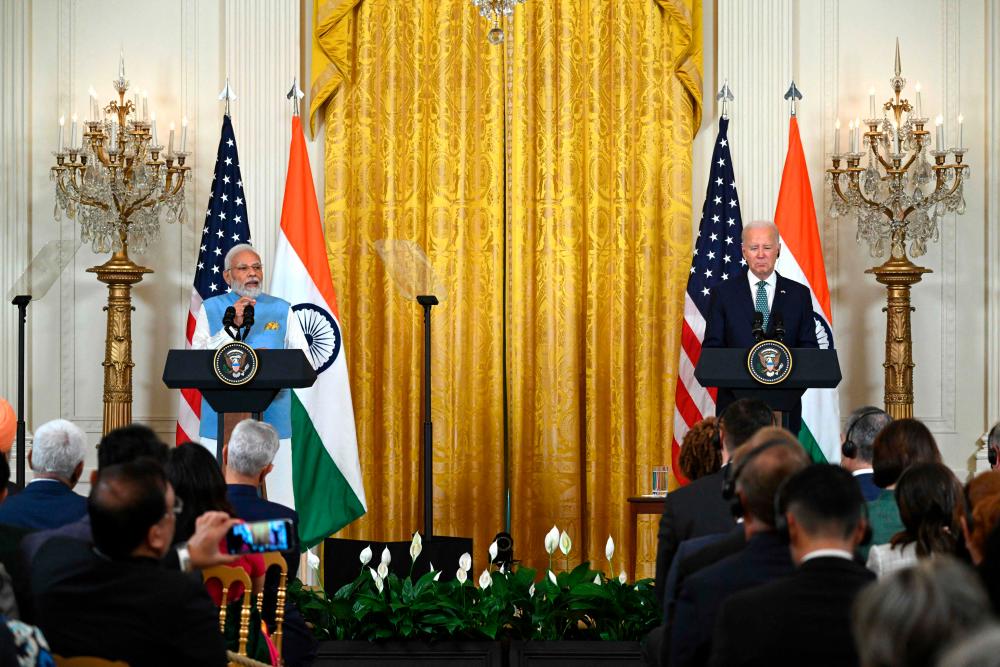WASHINGTON: The United States and India have agreed to end six disputes at the World Trade Organization (WTO), US authorities said on Thursday (June 22), after a meeting between the countries’ leaders.
India also “agreed to remove retaliatory tariffs” on certain US products such as chickpeas, lentils and almonds, the US Trade Representative’s (USTR) office added in a statement.
The USTR announcement came during a visit of Indian Prime Minister Narendra Modi to the United States, and both nations have also reached major deals on engines for fighter jets, semiconductor investment and space cooperation.
The tariffs India imposed came in response to US measures on steel and aluminium, and the USTR statement said “these tariff cuts will restore and expand market opportunities for US agricultural producers and manufacturers”.
“Today’s agreement represents the culmination of intensified bilateral engagement over the last two years,” said USTR Katherine Tai.
Of the six WTO disputes, three were initiated by the United States and the other three by India.
They involve measures on solar cells and solar modules, the renewable energy sector, as well as measures on steel and aluminium products, the statement said.
The United States is India’s largest trading partner but the US has much larger trading relationships with China, the European Union, and North American neighbours.
US President Joe Biden and Modi will sign off on a deal to allow General Electric to produce jet engines in India to power Indian military aircraft, through an agreement with Hindustan Aeronautics.
US chipmaker Micron Technology's plans a US$2.7 billion semiconductor testing and packaging unit, to be built in Modi’s home state of Gujarat. The US will also make it easier for skilled Indian workers to get and renew US visas.
On Thursday, Biden and Modi hailed a new era in their countries’ relationship after the White House rolled out the red carpet for the Indian prime minister, touting deals on defence and commerce aimed at countering China’s global influence.
The partnership is “stronger, closer and more dynamic than at any time in history,” Biden told reporters at a joint press conference with Modi after the two leaders emerged from Oval Office talks where differences on Russia and human rights were on the table.
The economic relationship is “booming”, Biden said, with trade more than doubling over the past decade.
After Biden and Modi spoke privately for more than two hours, a joint statement included a warning of rising tensions and destabilising actions in the East and South China Sea and stressed the importance of international law and freedom of navigation. – AFP, Reuters









